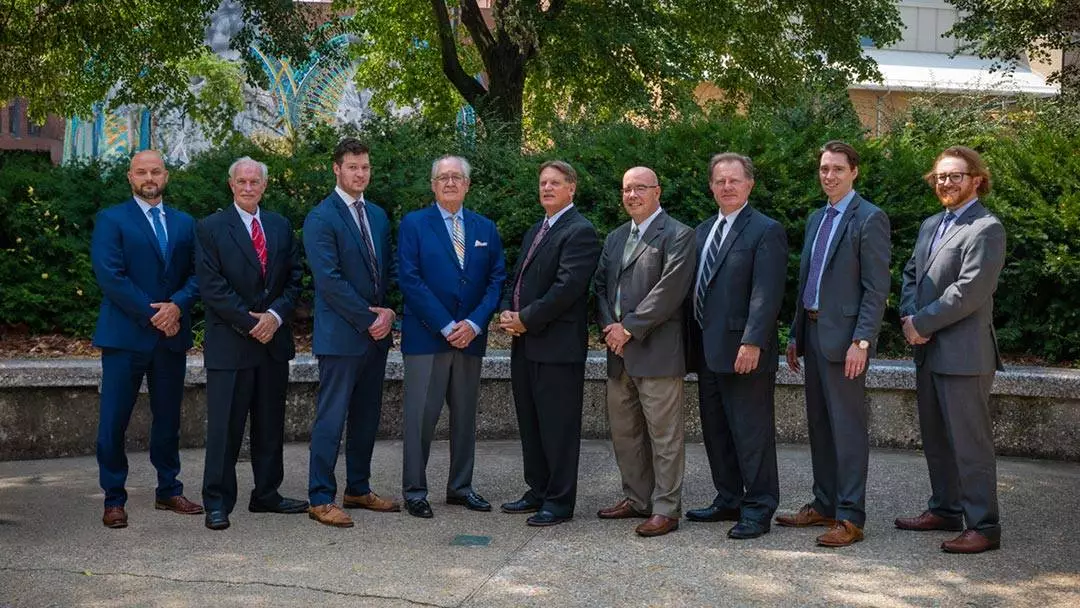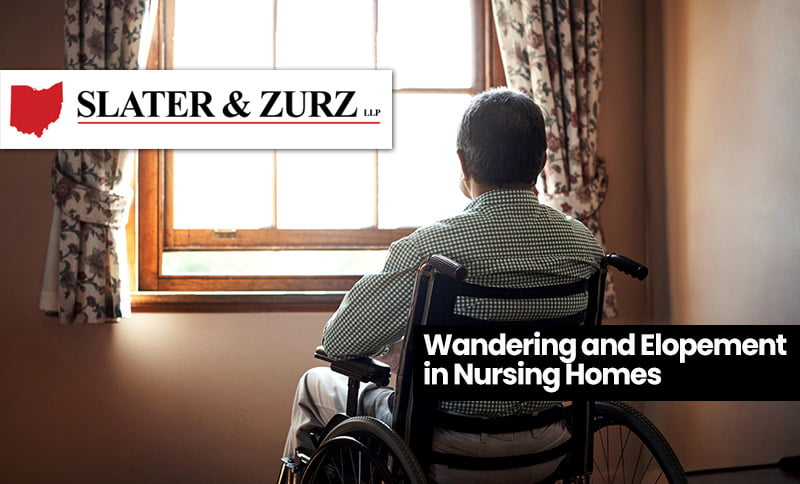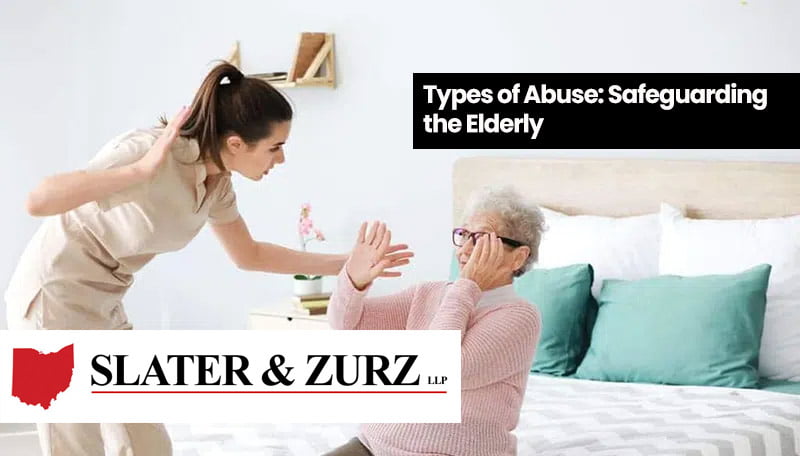The Responsibilities of Ohio Nursing Homes As Outlined by Federal and State Law
Choosing to place your loved one in a nursing home is no easy decision. You and other family members will likely experience a wide array of emotions, ranging from guilt to distress; guilty that you can no longer care for your loved one, and distress, worrying about how to protect their future health and well-being.
Though making the decision to move your older family member into a nursing home or other long-term care facility is a difficult one, you and your family should feel a level of comfort, knowing rules and regulations are in place to protect them. Below are the Federal and state laws that should be adhered to by all nursing homes and long-term care facilities. These regulations, in essence, create a code of ethics for nursing homes. If your loved one’s nursing home or assisted living facility ever fails – or has failed to comply with these standards, you have the right to seek justice.
At Slater & Zurz, our nursing home abuse lawyers are passionate when it comes to upholding the law and ensuring injured victims secure the compensation they need and deserve. If you or a loved one suffered abuse or neglect at the hands of nursing home staff members or others while residing in a nursing home, we urge you to take action and reach out to our firm today.
Call Ohio’s top nursing home abuse attorneys at Slater & Zurz today. 888.534.4850
Nursing Home Reform Act
In 1987, the Federal government recognized that abuse and neglect of older adults was becoming a widespread problem within our country’s nursing homes. As such, they enacted the Nursing Home Reform Act, legislation that ensured nursing home residents receive the quality care needed to achieve and maintain their mental, emotional, and physical well-being. It protects residents from any form of abuse and neglect by setting standards of care for the facilities, nurses, and other staff members.
Services Offered by Ohio Nursing Homes
The Nursing Home Reform Act outlines the services nursing homes should provide to their residents. To protect the health and safety of older adults living in long term care facilities, these services should include:
- Dietary services to ensure proper nutrition and hydration
- Maintaining adequate nursing and caretaker staffing
- Providing rehabilitation services
- Ensuring access to proper medical treatment
- Proper preparation and administration of medications
- Regularly assessing each resident’s functional capacity
- Creating up-to-date, comprehensive care plans for each resident
- Maintaining accurate and complete medical records
- Access to a full-time social worker if the facility has over 120 residents
The Rights of Nursing Home Residents
The Nursing Home Reform Act specifies that older adults residing in nursing homes or other care facilities are entitled to:
- The freedom of abuse, neglect, mistreatment
- The freedom from unnecessary restraints
- Necessary psychological, physical, and medical care
- Be treated with dignity and respect
- Receive information regarding their medical care and treatment
- Communication with family members, friends, and fellow residents
- Privacy
- Security and safety
- Participate in community activities
- Welcome or refuse visitors
- The security of possessions
- Participate in the review of their care plans
- Voice grievances and file a complaint regarding any abuse or neglect
- Choose their own doctor or medical provider
- Refuse medication (with some exceptions)
Consult with an experienced nursing home abuse lawyer in Ohio by calling 888.534.4850.
Ohio Nursing Home Patient Bill of Rights
Ohio nursing home residents are afforded several protections. The Ohio Nursing Home Patient Bill of Rights, Ohio Revised Code 3721.13, grants many rights to those residing in nursing homes or other assistive or long-term care facilities. Although similar to those outlined in the NHRA, Ohio’s legislation takes some protections a step further. Under ORC 3721.13, a resident has the right to:
- A clean and safe living environment
- Exercise all civil rights
- Adequate and appropriate nursing care and medical treatment regardless of age, race, color, national origin, or source of payment for care
- Be free from verbal, mental, emotional, and physical abuse
- Be treated with respect, courtesy, respect, and recognition of dignity and individuality at all times
- Have all reasonable inquiries and requests addressed promptly
- Have all clothing and bedding changed as needed to ensure the resident’s sanitation and comfort
- Know the name and specialty of any doctor or person responsible for their care or coordination of care
- Have their staff physician of choice and the right to choose an attending physician or one who is not on the facility’s staff
- Withhold payment for a doctor’s visit if the doctor did not visit the patient
- Participate in any decisions that affect their life, including communication with their doctors, access to their medical records, and information relating to medical conditions and treatment
- Confidential treatment of their personal and medical records and the right to approve or refuse information disclosure
- Privacy during medical exams and treatment and care of their personal and bodily needs
- Refuse to serve as a subject in a medical experiment
- Be free of physical and chemical restraints
- Choose a pharmacist and to receive medications at reasonable prices
- Participate in educational, vocational, recreational, social, and habitual programs at the resident’s expense
- Go to sleep and wake up on their own schedule
- Observe religious activities and obligations, maintain their cultural identity, and participate in community and social groups
- Private and restricted communication with family members, social workers, public officials, and attorneys.
- Visitation from and to share a room with their spouse
- Keep their doors closed and for them not to be opened without first knocking except in an emergency or as part of their doctor’s orders
- Keep and use their personal items, including their clothing and possessions
- Be fully informed of the fees and rates charged by the facility
- Receive monthly itemized bills from the nursing home
- Refuse to be transferred or discharged from the facility unless necessary as prescribed by statute
- Be given reasonable notice of a rate or room change and a full explanation of the change
- Voice grievances and recommend changes in policies and services
If your loved one has suffered abuse or neglect while residing in an Ohio nursing home, call 888.534.4850 to discuss your legal options.
What to Do If You Suspect Nursing Home Abuse
If you feel your loved one’s nursing home failed to follow any of the above rights and responsibilities, you must take action right away. Here are some things you should do if you suspect abuse or neglect has occurred.
Speak to Your Loved One
If you feel something just isn’t right, talking to your loved one is the best place to start. They can tell you about their issues or concerns over their treatment at the facility. But be sure to keep in mind that victims of nursing home abuse are often too afraid or embarrassed to admit they have been abused or neglected.
Discuss Your Concerns with Management
Set up a meeting with the nursing home’s manager or administrator and explain your concerns. They will likely take immediate measures to investigate and remedy the decision. However, if they make excuses or dismiss your concerns, you will have to take further action.
File a Complaint
Cases of abuse and neglect need to be reported to the proper authorities. In Ohio, you can contact your local ombudsman. They will launch a formal investigation and take measures to stop the abuse or neglect, and hold the facility accountable.
Talk to an Ohio Nursing Home Abuse Lawyer
If your family member has become a victim of abuse and neglect while residing in an Ohio nursing home, you may wish to speak to a skilled nursing home lawyer. They can help you decide if the situation warrants a legal claim. These claims not only aim to compensate your loved one for the losses they incurred, but they also force facilities to take corrective action so further abuse or neglect does not occur.
If Your Loved One Has Suffered Nursing Home Abuse or Neglect, Speak to a Lawyer
Although Federal and State laws go to great lengths to protect the rights of older adults, it is an unfortunate reality that some nursing homes fall short, allowing elder abuse and neglect within these facilities to still occur. Suppose you or your loved one is a victim of nursing home abuse and neglect. In that case, we encourage you to contact our experienced and compassionate elderly abuse attorneys in Ohio.
Our nursing home abuse lawyers have over four decades of experience holding nursing home facilities accountable. We know how to properly investigate these matters, implement an effective strategy to prove the facility’s negligence, and secure maximum compensation for our clients. To learn more about Ohio nursing home abuse cases and the rights afforded to Ohio nursing home residents, call (888) 534-4850 or contact us online.






